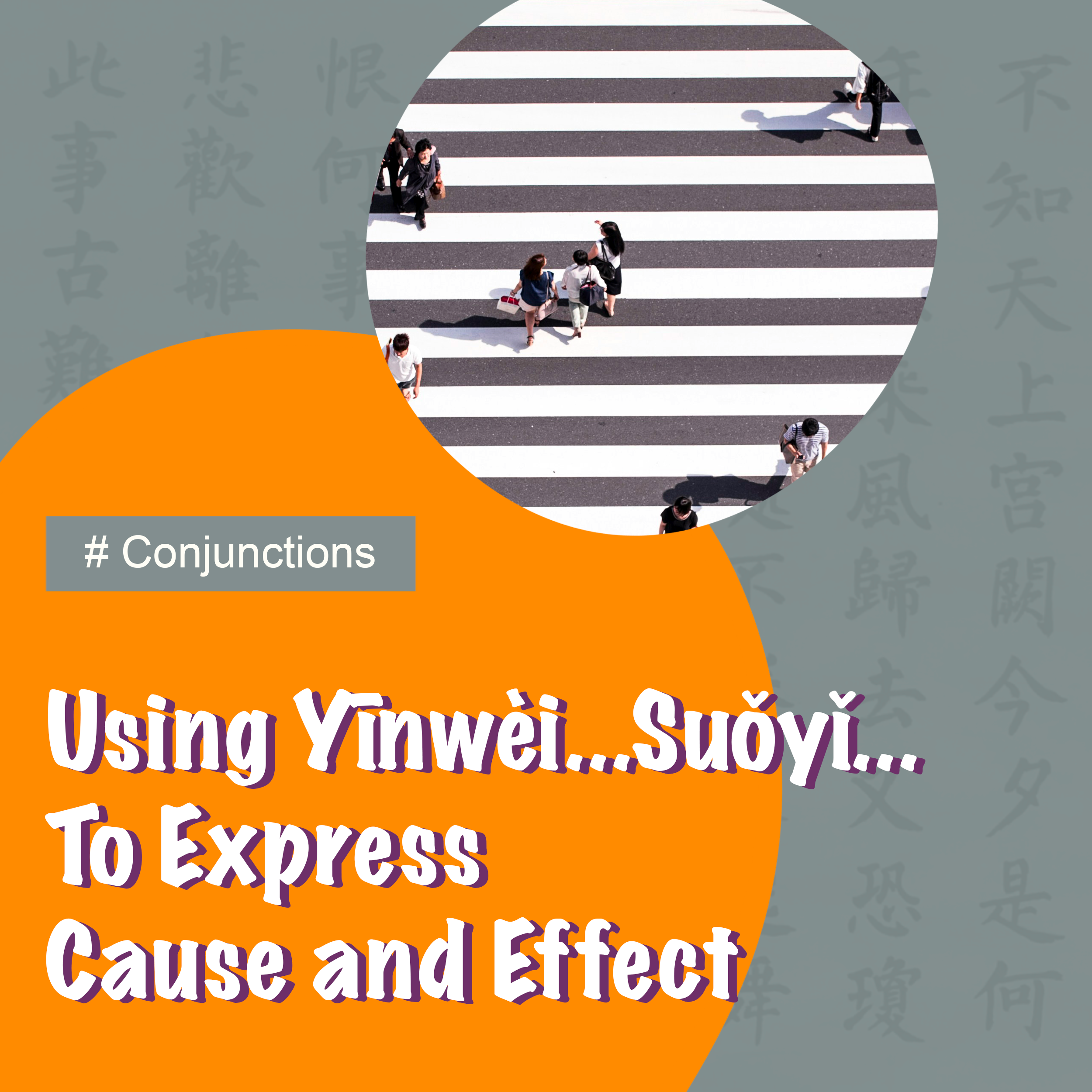Using Yīnwèi...Suǒyǐ... To Express Cause and Effect
Let's establish some baseline logic so we can think about this clearly. When using logical statements, we usually have some kind of condition and result. In this case, the condition is your "reason" and the result is what happens due to that reason. Here are some examples:
"I don't like him, because he is mean."
"I can't buy this car, because I don't have money."
Now, this premise is the EXACT SAME in Mandarin. However, before we learn the formal set structure for this, let's rearrange the phrasing so we can better understand how a Chinese speaker will express this:
"Because he is mean, so I don't like him."
"Because I don't have money, so I can't buy this car."
Notice in both examples we have the keywords because and so. This arrangement gets us EXACTLY to Mandarin's structure: "yīnwèi he is mean, suǒyǐ I don't like him." This set is the same as the "Because...so..." form in English. This structure is PRETTY STRICT. yīnwèi this grammar is fundamental, suǒyǐ we are going to make sure that we always use both parts of the set and order in this way. ;)
Now, some examples:
yīnwèi A,suǒyǐ B.
yīnwèi zhège shǒujī tài guì le,suǒyǐ wǒ bùhuì mǎi zhège shǒujī.
因为这个手机太贵了,所以我不会买这个手机。
Because this phone is too expensive, so I won’t buy this phone.
yīnwèi zhèjiàn wàitào hěnhǎokàn, suǒyǐ wǒ mǎile yījiàn gěi wǒ de māma.
因为这件外套很好看,所以我买了一件给我的妈妈。
Because this jacket is really good looking, so I bought one for mom.


